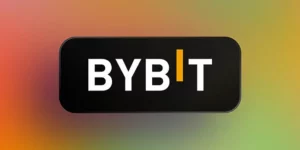Introduction
In the world of cryptocurrency trading, choosing the right exchange can significantly impact your experience and profitability. Two of the most popular platforms, Bybit and Binance, offer traders a wide range of features, competitive fees, and strong security measures. However, each platform has its own strengths and weaknesses, making it essential to compare them in detail before deciding which one suits your trading needs best.
This article provides a comprehensive comparison of Bybit and Binance, focusing on trading fees, features, and security, helping you make an informed decision.
Trading Fees: Which Platform Offers Better Rates?
Trading fees are a crucial factor when choosing an exchange, as they directly affect your profitability. Both Bybit and Binance offer competitive fee structures, but they differ in some key areas.
- Bybit Fees: Bybit primarily focuses on derivatives trading, offering a maker fee of 0.01% and a taker fee of 0.06% for perpetual contracts. For spot trading, Bybit charges a flat 0.1% fee for both makers and takers, which is relatively low compared to many exchanges. Bybit also offers fee discounts for VIP users and those who stake their native token, $BIT.
- Binance Fees: Binance offers a tiered fee structure based on users’ trading volume and BNB holdings. Standard spot trading fees start at 0.1% but can be reduced to 0.075% when paying with BNB. Futures trading fees are 0.02% for makers and 0.04% for takers, making Binance slightly cheaper for high-frequency futures traders.
While both platforms provide competitive fees, Binance offers more flexibility and cost savings for traders who hold BNB. However, Bybit’s simple fee structure and lower derivatives trading costs make it attractive to futures traders.
Features: Bybit vs Binance
Both Bybit and Binance provide extensive features catering to different types of traders. Let’s break down the key aspects.
Trading Options
- Bybit focuses heavily on futures trading and derivatives, with high leverage options up to 100x for certain pairs. It has recently expanded into spot trading, but its primary user base consists of derivatives traders.
- Binance offers a more diverse selection, including spot trading, futures, margin trading, staking, savings products, launchpads, and even an NFT marketplace. Binance is ideal for traders who want a multi-functional platform beyond just derivatives.
User Experience & Interface
- Bybit has a clean and easy-to-use interface tailored for professional traders. The order execution speed is fast, and the liquidity is high, making it a great choice for those who trade derivatives actively.
- Binance, on the other hand, has a feature-rich but somewhat complex interface. New traders might find it overwhelming due to the vast number of products and trading pairs available. However, it offers more customization options and an advanced trading experience.
Mobile & App Performance
- Both Bybit and Binance offer well-optimized mobile apps with real-time charts, trading tools, and notifications.
- Bybit’s app is particularly known for its fast execution speeds and minimalistic design, making it ideal for traders focused on futures trading.
- Binance’s app is more comprehensive, with access to all features, including staking, lending, and NFTs.
Security: Which Platform is Safer?
Security is a top priority for any crypto trader, and both Bybit and Binance have robust security measures in place.
- Bybit Security: Bybit stores 100% of user funds in cold wallets, reducing the risk of hacks. It also implements multi-signature withdrawals and two-factor authentication (2FA) to enhance security. Bybit has never been hacked, making it a trustworthy platform in terms of security.
- Binance Security: Binance has one of the most advanced security infrastructures, including SAFU (Secure Asset Fund for Users), which protects user funds in case of an attack. However, Binance has experienced security breaches in the past, most notably in 2019 when hackers stole $40 million worth of Bitcoin. Since then, Binance has improved its security protocols, making it safer for users.
While both exchanges offer high-level security, Bybit has a better track record of avoiding hacks, while Binance provides additional protection with its insurance fund (SAFU).
Conclusion: Which One Should You Choose?
Choosing between Bybit and Binance depends on your trading goals and preferences.
- If you are a derivatives trader looking for low fees, high leverage, and a simple trading experience, Bybit is an excellent choice.
- If you prefer a well-rounded exchange with access to spot trading, staking, lending, and an extensive range of products, Binance is the better option.
Both platforms are highly competitive and provide traders with top-tier services, so your decision should be based on your specific needs. Whichever you choose, ensure that you implement proper risk management and security practices to safeguard your assets.